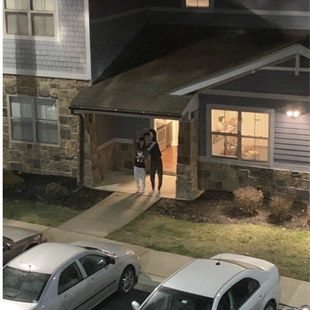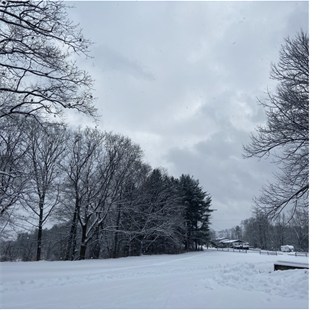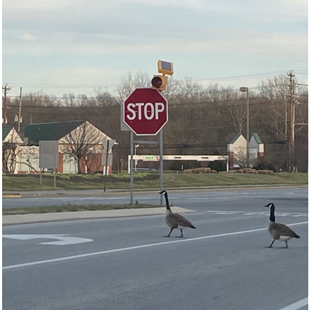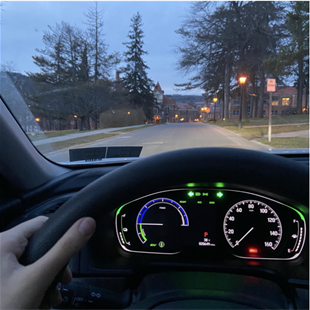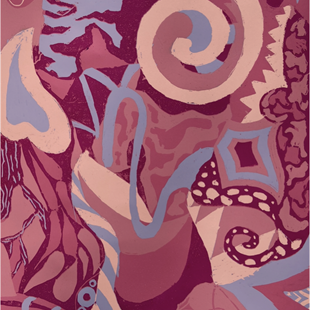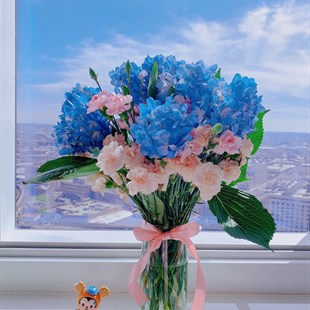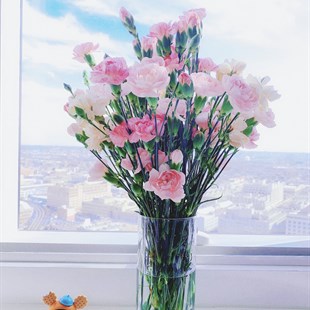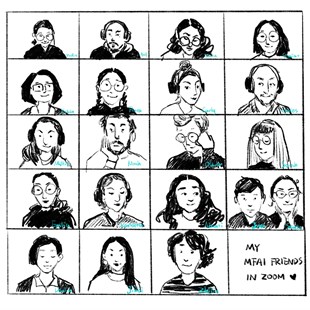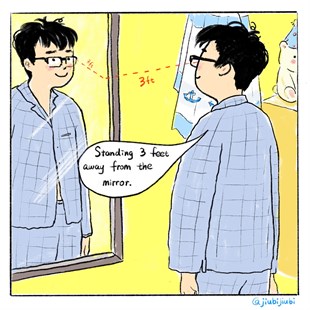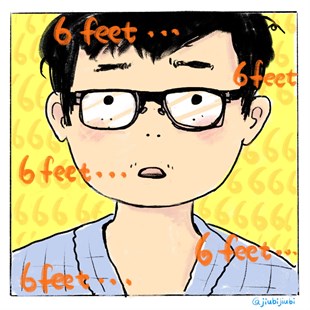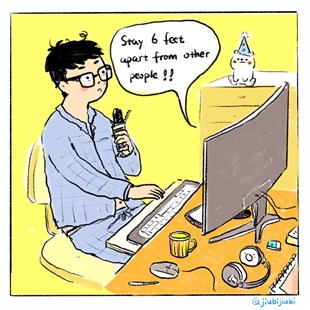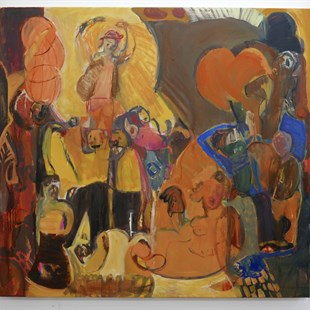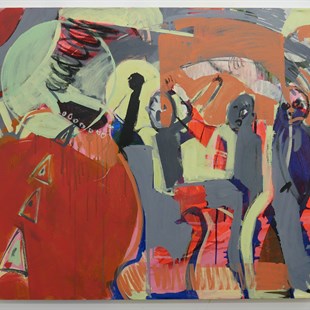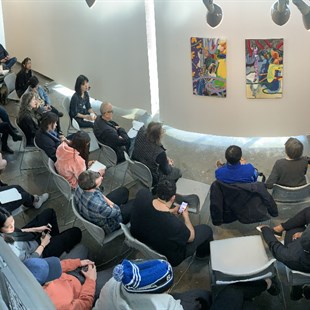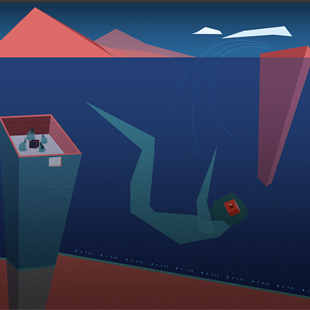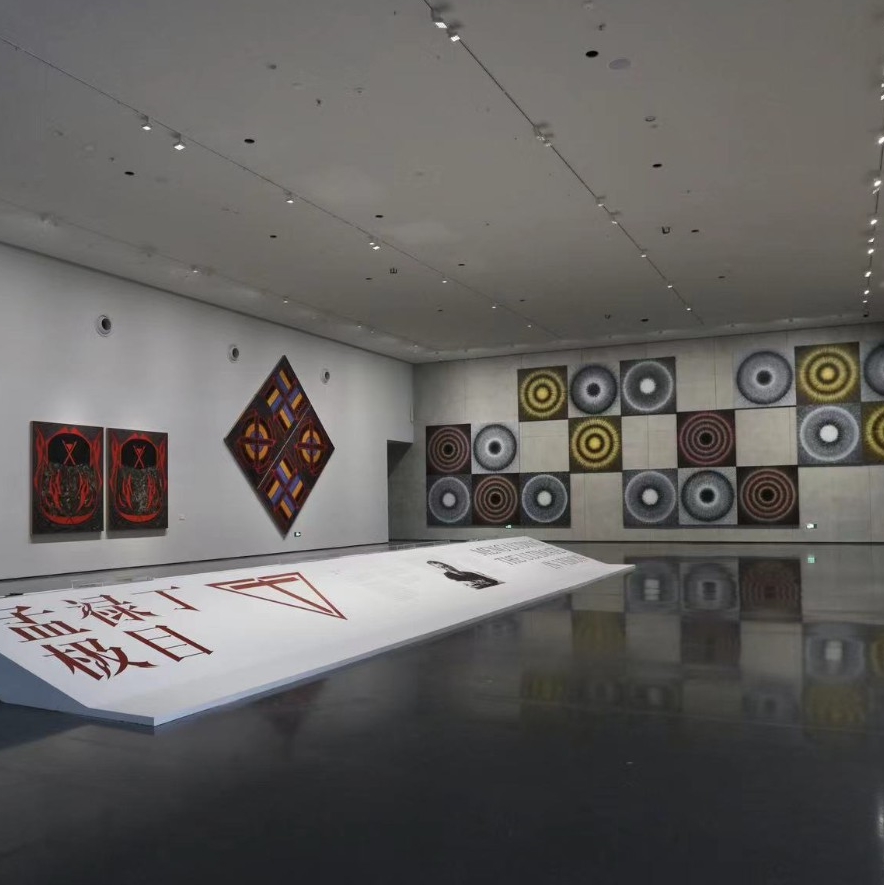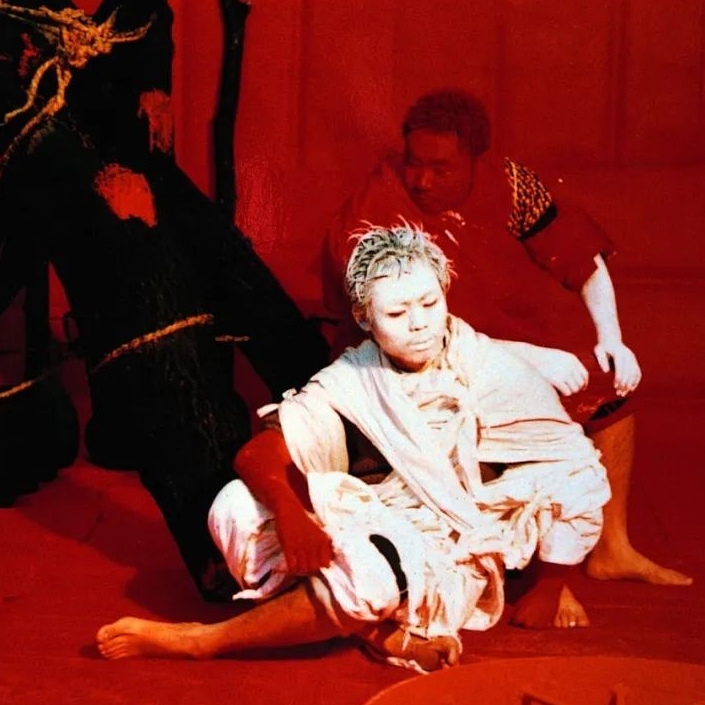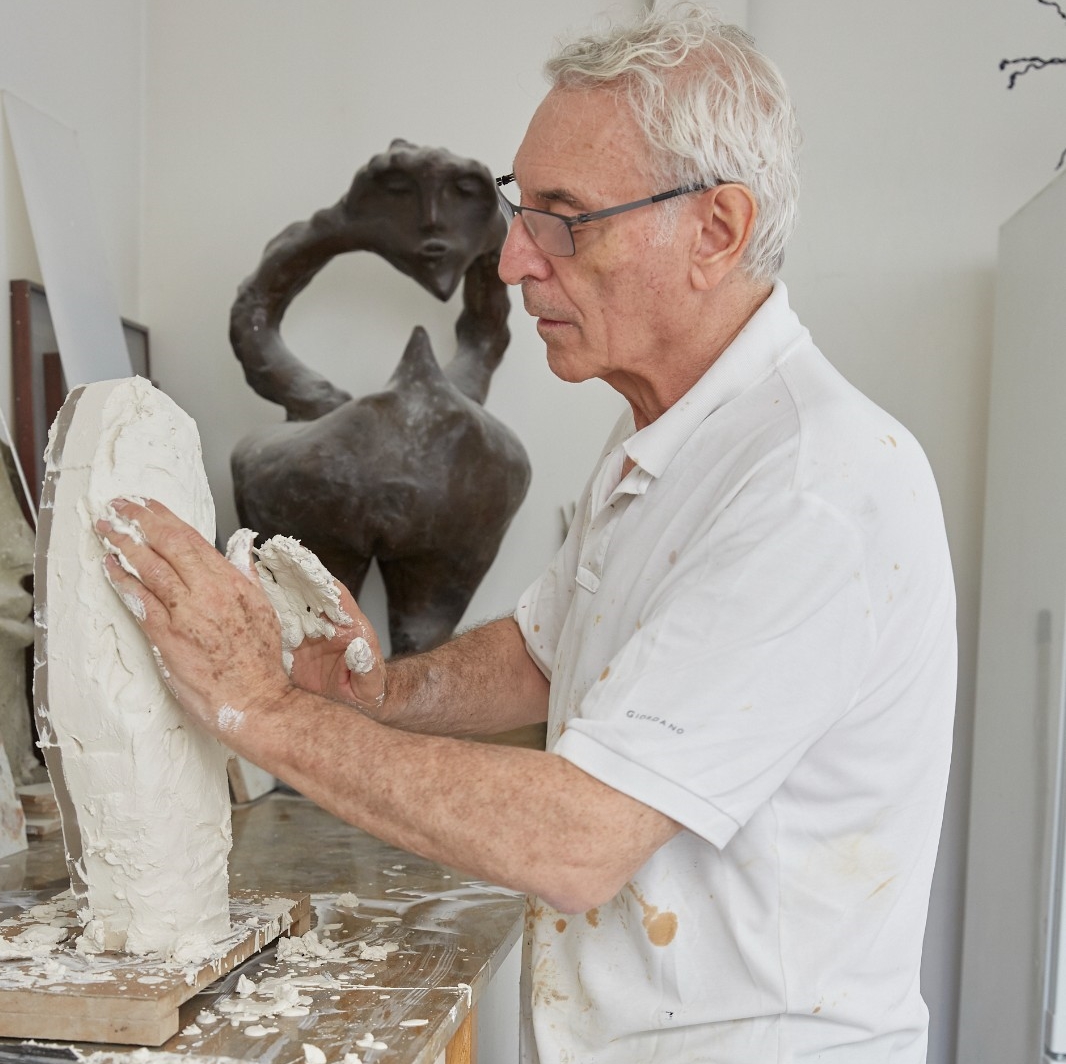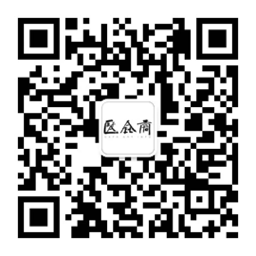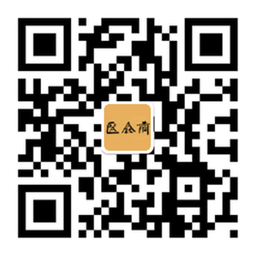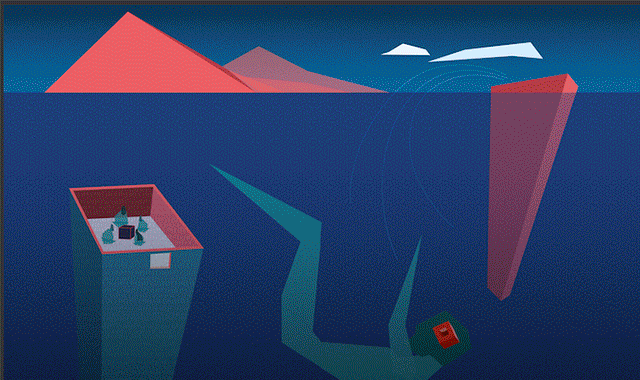
Editor’s Note:
With the grim situation of the COVID-19 pandemic spreading through the global community, students from overseas art schools are also facing increasing anxiety. How to solve the problems such as the suspension of their school, graduation work, as well as the dormitory closure? For international students from all over the world, when they confront various pandemic prevention policies in different countries, either staying where they are or going back to their home-country, could be a tough decision for them. No matter what choice they make, they are under tremendous psychological and social pressure.
During this special period, CAFA ART INFO hopes to share real situations and opinions from this group of students. What is the status of the pandemic situation in the country they are staying? We pay attention to the current state. All questions are expected to be answered by them. All the concerns and encouragement we would like to share with them would be presented as follows.
CAFA ART INFO: Can you briefly introduce your situation in studying abroad?
Siyou Wang: I am from Beijing, a sophomore year student studying in the United States. Now I’m studying in the School of Art & Design, Alfred University, New York.
Marcello Caruso: I am a student at the Accademia di belle arti di Firenze(the Academy of Fine Arts of Florence). In 2019 I received my degree, with honors, in printmaking and graphic arts. I am currently in my second and final year of a master in Illustration. Originally, I am from South Africa, my father is Italian and my mother South African, therefore I have dual citizenship. Five years ago, I was presented with the opportunity to study in Italy at the prestigious Academy of Fine Arts of Florence. I aim to explore the visual language of creativity and communication, and often draw upon the history and myths of different cultures, especially those that predominantly make use of imagery to communicate.
Qinyu Zheng: I’m Qinyu Zheng and I graduated from the Central Academy of Fine Arts. I’m a first-year master student in MFA Illustration at the Visual Essay program at School of Visual Arts, New York.
Mona: I am from Wuxi. I am taking the post-graduation program at the New York Studio School in New York, United States.
Ziping Wang: My name is Ziping Wang from Shenyang, China, currently a second-year graduate student at the School of Design, Pratt Institute, majoring in fine art.
CAFA ART INFO: Where are you currently? How does the COVID-19 pandemic directly influence you? What is your current life situation and state of mind?
Siyou Wang: The COVID-19 pandemic caused the suspension of classes in a large majority of schools in the U.S. and students had to go back to their homes for online classes. I was on spring break at the beginning of the outbreak of COVID-19 pandemic in the U.S. It directly disrupted all my plans. First of all, I received an email from the school informing me that I would have online classes for a week and then we can go back to the school as usual. This made me feel really uneasy because I knew how strong the transmission ability of the coronavirus was. Plus, Americans are not accustomed to wearing masks; once the spring break is over and students return to school from different areas, it's easy for the virus to be out of control.
Besides, my school AU is located in a remote place and the medical conditions are limited. The consequences of the outbreak are unpredictable. Two days later, the school finally decided to close down and change all the remaining courses of this semester to online teaching. My worry was gone, but new challenges came. Because of the closure of the school, we had to empty our dormitories. In this case, we had to find somewhere to store our stuff. Three of my friends and I chose to rent a large storage unit ten minutes away from our school and put all the belongings in it. I considered going back to Beijing, but I noticed that most of my friends' tickets had been cancelled. Some of the students who have already returned have also had a very tortuous return journey. For example, I learned that some students took more than 60 hours to return to Beijing. Meanwhile, domestic policy is also changing constantly. If you want to go back to Beijing now, you will be diverted to another city. Only after you are isolated for 14 days, can you then move to Beijing for the next stop. Now I'm in Delaware with my friends. I'm in good shape. I haven't panicked too much because of the outbreak and I've taken enough preventative measures in my daily life.
Marcello Caruso: I am currently in Florence, Italy. The COVID-19 pandemic has had a detrimental effect on everyday life in Italy, as I am sure it has had in most other countries as well. We are encouraged to stay indoors, and limit all unnecessary outdoor activities. Life has become limited to the personal space in which we live. We have the opportunity to leave our homes only to go to the supermarket where people keep their distance from one another.
Qinyu Zheng: I’m currently in NYC. The art schools in NYC closed the campuses and started online courses due to the outbreak of COVID-19 in the U.S. During the early period of quarantine, the masks in pharmacies had already been sold out, so I had to ask my family members and friends for help. I bought some supplies from Amazon. The supply of food is fine as I usually cook at home. Sometimes I will go to the grocery stores with my roommate.
Mona: I am in New York City. The school is closed, as well as all the other non-essential businesses. I am currently working from home and I have zoom-meeting with teachers and other classmates a few times a week. The rest of the time I am reading, writing, researching and looking for opportunities to promote my work online. The change of ways and how we get education as art students do not have a huge influence on me since I am not in a degree-seeking program, which means I am not required to meet any deadlines but only keep attending classed that I registered for. In addition, with a couple of years of working independently as a practicing artist, I have developed my own strong work ethic. The student visa won’t be extended due to the COVID-19 situation, while the school has decided not to extend the academic calendar year.
Ziping Wang: I’m currently in Houston, Texas. When the number of confirmed cases in NY began to rise, many companies started their work-at-home policy to encourage social distancing. My upstairs neighbor was not taking the situation seriously and hosted a big party that very night. I was partly alarmed by their irresponsible action. Besides, I feared the potential of a city-wide lockdown on the horizon, so I made the decision to find a friend to take care of my cat, packed my thesis paper references and my painting materials, and escaped to suburban Houston where the population density is much lower. Days later, I got the email about no access to the studio, after that there was an email about the cancellation of the degree show and graduation ceremony, then the reduction of stipend from my graduation assistantship. Some of the residency program I’ve applied to also announced they will cancel their programs for the year.
CAFA ART INFO: What is the current pandemic prevention policy in the country you are studying/staying in?
Siyou Wang: As we all know, the COVID-19 pandemic situation in the United States is becoming increasingly serious. Maybe it's because of the illusory hope at the beginning or for some reason that the U.S. now starts to deal with the pandemic in an all-round way. Now the number of infected people is growing rapidly every day, and the infection number here has become the highest in the world. There are many deep-seated reasons for the difference between the U.S. pandemic prevention policy and China’s, which requires more study and research to understand deeply. Probably it’s because of "autonomy," the most important word in American political genes. Now some states have announced closure, such as New York State where my school is located. The governor ordered to stop all unnecessary commercial activities. Even the most prosperous New York City was forced to press the pause button. I still remember the first time I went to New York in my freshman year. At that time, I even felt a little uneasy in New York because there was a sense of surging everywhere in the city, which made people feel a sense of urgency that you can never stop. However, such a bustling city has never before shifted to an empty city under the outbreak of the Coronavirus. Medical staff in New York said hospitals are overburdened, while Trump remains confident. He even said he hoped to open up all public activities in the United States before Easter. It took China two months of strict isolation to stabilize the situation.
Qinyu Zheng: The government suggested residents to work from home, and schools to close the campuses. The best way to prevent the illness is to avoid being exposed to this virus, wash our hands often. For those whose symptoms were less severe at COVID-19, they should stay at home and self-quarantine. Fifty percent of people have already put on masks and gloves when outside and public areas will provide sanitizer, some supermarkets even provide free gloves. In general, I’m happy to see people starting to take precautions in protecting themselves.
Mona: Self-distancing. If you are not working for an essential business, you are required to stay home.
Ziping Wang: Many states in the U.S. have issued the stay-at-home order to the public. All public gathering spots were shut down, and the restaurants are only accepting takeouts. Houston, where I currently stay, has done the same, only the necessities remained open, such as gas stations and grocery stores.
CAFA ART INFO: How is your university responding to the outbreak of the pandemic? Does your school start a contactless model, such as online classes?
Siyou Wang: Our school asked all students to go home. Of course, for the international students, we can apply to stay in the school a little bit longer. Now the school is also running short of supplies. Interestingly, before the outbreak of Coronavirus in the U.S., when I was in my glass course, the teacher gave each student an N95 mask when they went to the studio for general cleaning on Wednesday each week. At that time, it was the period of the severe epidemic in China. I even thought about buying some N95 masks from the school and sending them back. I didn't expect that it would come so quickly, just a few weeks later. Online classes have begun. For art students and professors, online classes are not as easy as other majors. I'm sad that I have two professional courses this semester, one is making glass, the other is ceramic hand- building. Without professional facilities, equipment and tools, the two courses cannot work. The professors can only send some videos and materials for us to do some research, which is a big loss for me. Our online class is conducted through Zoom. It's not easy for professors because many of them don't have the experience of teaching this way. When they give us online lessons, they would consult us. Some elderly professors also asked us some technical questions.
Marcello Caruso: The Academy has arranged online classes and in this manner, we can, to an extent, still follow our classes and develop our projects, but unfortunately we are nonetheless at a disadvantage.
Qinyu Zheng: SVA has already started online teaching, many of our professors are elderly, and they put in major effort to learn about the technical methods of online platforms and sending emails to us before every class, which I’m very grateful for. The online system is stable, I can see everyone’s face during classes, and I really enjoy it. The head of our department recorded a warm video for us, encouraging us to wash our hands frequently, create more artworks at home and not worry too much during this tough time. I was so moved. Every Friday our department will have an online virtual beer meeting, we can chat and cheer in the chatroom, share our experiences and stories of quarantine, that is a good way to release the pressure and retain a healthy mood.
Mona: Yes. The school hosts daily meetings as well as other classes through Zoom.
Ziping Wang: My school cancelled all classes on March 12th and will be transitioned to online classes starting March 30th. Classes that are more theory-based have transitioned easier. We used mainly Zoom or Google Class. However, my ceramic instructor has announced that his glaze and clay mixing class would be very difficult to teach without the ceramic studio. Therefore the online version of the class is now mainly theoretical, taught through videos.
CAFA ART INFO: In this special period, will the school support you in terms of medical advice or hospitalization, or assist with other things, if you were feeling unwell?
Siyou Wang: Now more and more students left campus, the school can't help it. If you feel unwell, you should go to the nearby hospital as soon as possible. The hospital will give you some tests and then send them to the CDC. After the results come back, you can determine whether you want to stay in the hospital.
Qinyu Zheng: We were told If we are feeling uncomfortable, we can get help easily. Students should be able to contact the health and counseling center. Every student has health insurance and it will cover some of the cost of treatment.
Mona: Be really careful about the basic daily routines to protect ourselves. The school gives medical advice and contacts for us if we are facing any issues. But unfortunately my school doesn’t have a professional medical consultant.
Ziping Wang: Currently, the school is fully closed, and the school clinics will redirect students to hospitals where better care can be provided. Therapy sessions are becoming online sessions as well. Just last week, the Manhattan campus of Pratt had one confirmed case, and there was a school-wide announcement to warn those who have been in contact. Overall, the communication from school to individuals has been effective.
CAFA ART INFO: Do you confront various social and public pressures during the different stages of the pandemic before and after the international outbreak?
Siyou Wang: I had some concerns when the pandemic broke out first in China and the news that Chinese or Asians were attacked. But I didn’t feel too much pressure from public opinions because every schoolmate and friend around me is friendly. However, on the social platform, we can see some people's dissatisfaction with China, believing that the coronavirus began to spread from China to the world. President Trump has also publicly turned the new coronavirus into a Chinese virus which is not in line with general practice and has strong guidance. As a president, he should be cautious.
Marcello Caruso: I believe in all the extreme situations, like the one we are currently experiencing, there will be a social outcry, calling for both reconciliation and remuneration (retribuzione). To the extent of my experience in Italy, fortunately most people strive for the former, we interact with each other remotely, most often by means of video calls. I cannot help to feel the sense that even though we are coerced to distance ourselves from one another, that there is a feeling of even greater unity.
Qinyu Zheng: This is a complicated question. Most of the international students live here alone. The positive and negative news of the pandemic can easily influence us. During this tragic time, the loneliness and the sense of isolation are being magnified and self-identity is diminished. I hope everyone can be optimistic and get through this difficult period. I’m sure better things are waiting for us in the near future.
Mona: I have read related news. But I have not experienced it personally.
Ziping Wang: When there were only a few cases in New York, I prepared early and bought face masks to reduce the risk when on my subway ride which is about 50 minutes each way. But in the mind of Americans, only the sick wear masks, so you’ll see people keeping a good distance away from me even in crowded times. There was this one time when an older woman held her breath and switched the subway train right when she saw me stepping in front of her. When the outbreak was serious in China, my fellow Asian students and I discussed that if New York did not take proper precautions now, the consequence may be dire. But the rest of the students all had the impression that it’s like a flu which has a low mortality rate to worry about it. But in the week following this, they all joined forces in demanding more action from the government, so I suppose they realized the gravity of the situation after all.
CAFA ART INFO: How do you plan to spend this special period?
Siyou Wang: This is the first time in my life I have encountered something like this. I was only three years old when SARS broke out. Besides, this time I am living abroad, far away from my family, I have to rely on myself for everything. My plan now is very simple: go out as few times as possible. I bought enough necessities in advance, I stay at home, take online lessons and think about new works, or at least record some ideas and make some layouts. What’s more, I EXERCISE at home. Strengthening resistance to infection is also one of the necessary prevention measures.
Qinyu Zheng: If we keep an optimistic attitude, and take care of ourselves, we should have no problem to continue studying and working. During these days, I feel that my efficiency has improved. The time saved from the commute and social activities can be used in other meaningful things if we have the right goals in mind.
Mona: Be connected, be productive, be healthy.
Ziping Wang: Although it’s unfortunate that the thesis show has been cancelled, I still plan to continue working on my thesis paper and painting. I can’t stand to stay idle; idleness fills me with guilt. I would feel that it is so little for me to do as an artist and the only thing I can help is to stay at home and not cause more problems.
CAFA ART INFO: Will the experience of the COVID-19 pandemic influence your art creation?
Siyou Wang: To be sure. Such a rare experience which brings me so many special feelings. It will emit something different.
Marcello Caruso: This period will definitely have an impact on each one of us and our work. It is believed that our obligation to stand together and respect our social obligations, not to spread panic but rather unity, be it through art, social media or interaction with the people we find in our immediate midst.
Qinyu Zheng: I’m going to create some daily drawings to record my quarantined life. I believe the pandemic certainly provided new content and material for us to think about and reflect on. Many of my illustrator friends will have inspirations to create new artworks.
Mona: Yes Definitely. I think being an artist is a journey to constantly seek a personal relationship with others, with surroundings, with society, with culture, with nature etc. The crisis and quarantine are an extreme situation for me to reflect on my thoughts and my needs.
Ziping Wang: I believe it will affect me, but the pandemic will not become a subject matter in my works. There are many new experiences and emotions I’ve had during this pandemic, some I would never imagine happening to me and people around me, so yes, this will have an impact. But I disdain the action of recording it down because I don’t wish to commercialize, or even gentrify an experience like this. I want to help others with ways that matter more.
CAFA ART INFO: Will you graduate this year? Will the degree show be changed or postponed?
Siyou Wang: I don't graduate this year, but I heard that the physical graduation exhibition this year would be cancelled. It's still a pity as I could have visited it.
Qinyu Zheng: I’m not graduating this year. There is no impact of the thesis show for me.
Mona: No. I am not in a degree-seeking program. Other fellow students will still have their shows, but they are postponed.
Ziping Wang: May 16th of this year was the date for the commencement of my show, but it was cancelled last week. I cancelled my order for the cape and gown yesterday and they were very understanding about it. There was news about other New York based art schools pushed their thesis show to the fall and we are communicating with the school about other possibilities as well.
Interview conducted by CAFA ART INFO
Dates: 2020/03/23 – 2020/04/10
Edited by Sue and Emily Weimeng Zhou
Image provided by the interviewees


